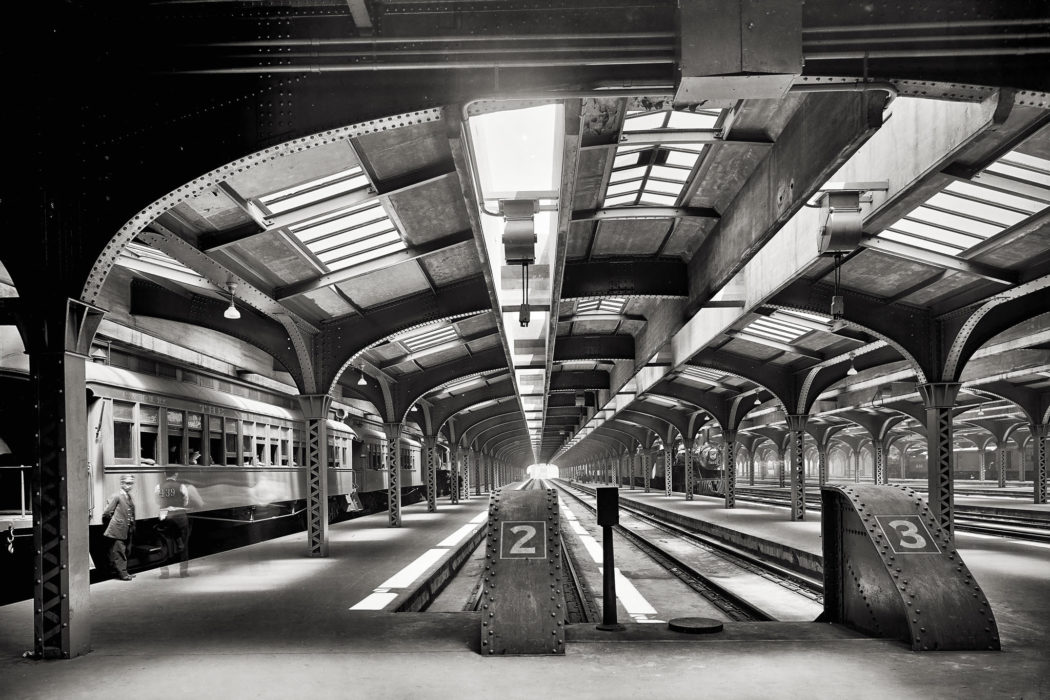“THE AMERICAN PEOPLE, ‘ABDU’L-BAHÁ remarked, “are not content to stand still.” From the moment he arrived in the United States, on April 11, 1912, ‘Abdu’l-Bahá has called attention to the nation’s relentless technological innovation, its commerce and material development, and its commitment to progressive social ideals. He has even noted America’s passion for modern modes of transportation, a passion he seems to share.
At 10 a.m. on the morning of September 18, 1912, ‘Abdu’l-Bahá left the Chicago & North Western Railway station in the busiest rail hub on the planet, and embarked on a four hundred mile train ride west to Minneapolis. It would be the first stop in a two-week journey that would take him nearly two thousand miles to the edge of Pacific Ocean in the state of California.
For a man who had spent the majority of his life in a state of captivity, the relentless travel was both exhilarating and exhausting. “Steam power is truly a wonderful thing,” ‘Abdu’l-Bahá said onboard the Cedric as he crossed the Atlantic. “It is impossible to sit in a train every day from morning until afternoon,” he noted, on the ride from Buffalo to Chicago, “the body cannot stand it.”
For ‘Abdu’l-Bahá, however, modern transport was not simply an efficient means of travel, but proof of the higher faculties of humankind. “Man is not the captive of nature,” he repeatedly told audiences, then proceeded to speak of planes, trains, ships, and submarines to make his point. “The power of steam has linked the continents,” he said in Boston on May 25. “Trains cross the deserts and pierce the barriers of mountains; ships find unerring pathways upon the trackless oceans.” He even invoked modern communication devices in service of his argument. “According to his natural power man should be able to communicate a limited distance,” ‘Abdu’l-Bahá noted in New York on April 15, “but by overcoming the restrictions of nature he can annihilate space and send telephone messages thousands of miles.”

In the opening decades of the twentieth century, science and technology were reshaping civilization at an alarming pace. ‘Abdu’l-Bahá believed that for all the incredible progress that had taken place in the material realm, it was “time for man to strive and put forth his greatest efforts in spiritual directions.” “Material civilization alone,” he said, “will not satisfy.”
“If the life of man be confined to this physical, material outlook,” ‘Abdu’l-Bahá commented, “the animal’s life is a hundred times better, easier and more productive of comfort and contentment.” Again he invoked transportation, this time to more somber effect: “Man, restless and dissatisfied, runs from morn till eve, sailing the seas, diving beneath them in submarines, flying aloft in airplanes, delving into the lowest strata of the earth to obtain his livelihood — all with the greatest difficulty, anxiety and unrest.”
‘Abdu’l-Bahá argued that technology and innovation must serve a higher purpose. To a crowd at the African Methodist Episcopal Church in the nation’s capital on April 23 he asked: “How shall we utilize these gifts and expend these bounties?” His answer: “By directing our efforts toward the unification of the human race.” He considered modern forms of transportation and communication as essential in facilitating this unification. Things, quite simply, needed to keep moving.
“Motion is life,” ‘Abdu’l-Bahá told an audience of Unitarian ministers in Boston on May 24. “This is the century of motion.”






